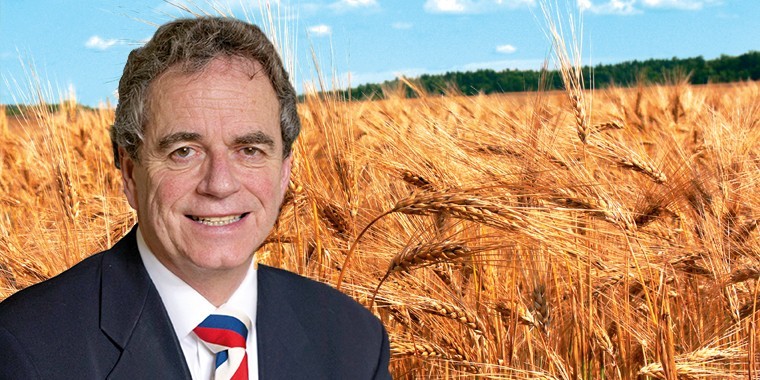With apologies to Charles Dickens, the 2016 harvest has seen the best of times and the worst of times for the grain trade.
I have the feeling that very few grain merchants or arable farmers will have made much money this year, despite the Brexit windfall and 20% devaluation of sterling.
The simple facts are: most of our industry – and the UK government – did not expect Brexit to happen. Following three record world crops in a row of wheat and maize, producers could be excused for adopting the risk averse strategy of selling wheat forward at the pre Brexit prices of about £110/£115 ex farm. Why wouldn’t they?
Having seen post harvest wheat values for the past three years tumble to about £100 ex farm, it seemed a sensible thing to do. Only with 20/20 hindsight can we now say it wasn’t.
So having sold 33% ahead, this quickly became 50%, as yields slipped back by 10% to15%. Also, the subsequent post Brexit rise was not exponential. Many who had sold forward already at £110/£115 jumped in again as soon as £120 came into the frame, leaving little or nothing left to sell at the current £135 to £140. Some, having resisted the temptation to sell, waited until December. But the market was flat, and sterling strong, so they cashed out at about £125 for the new year.
Oilseed rape was even more catastrophic, with pre Brexit sales of about £260 for harvest. Subsequently yield losses of up to 50%, meant there was no extra seed available to sell at the post Brexit inflated values of up to £350. In some cases defaults on tonnage shortfalls made this even worse. So, whilst on paper Brexit has produced a windfall of increased values, I am afraid the majority have not been able to take any great advantage of it.
Merchants are in a similar position. Those operating pools had also to make pre Brexit forward sales. It would have been negligent and irresponsible not to have also sold 25% to 30% ahead to manage the considerable risk of another record wheat and maize crop and the likelihood of a remain vote.
We already have the quite unusual case of a merchant in East Anglia going into liquidation. I have just spent a few days at a world grain conference in Europe. Bearing in mind that France had a worse harvest than UK, there are now many small to medium merchants and cooperative businesses in western Europe that are struggling to survive. There is talk of stronger Northern Europe cooperatives looking to take overs and acquisitions. In many cases there is no crop left to sell with a long way to go until harvest.
So that’s all the worst of times, I hear you say, so where does all the best of times come in? Well, there are some who didn’t suffer the yield setbacks of the majority. On oilseed and wheat and also through luck or good judgement are those who did not sell or commit forward. But they are in the minority. Those who persevered with spring malting barley over the last three years were eventually rewarded with up to a £30 premium as a direct result of the French malting crop failing and the subsequent increased demand for UK barley in Europe.
But, maybe the best of times is exemplified by the opportunities that Brexit has given us to trade safely up to March 2019 at values for wheat and malting barley which seem to totally ignore the increasing world crops and stocks that surround the UK. These forward values become even more important when you consider the comments about, hard Brexit and the whole trade falling off a cliff after 2019.
Maybe the risk averse forward selling for harvest 2016 – which caused problems – is precisely what producers should be doing for 2017 and 2018. I have been happy to trade committed malting barley, for export to the European Union safely up to March 2019. Having just spent some time with our main European and worldwide maltster and brewer customers, I am confident about one thing. The big brewers have become used to using malt made from British spring malting barley. They are seriously concerned about tariffs after March 2019 which could either restrict or make more expensive UK spring malting barley.
I know we import about one million tonnes of milling wheat from Germany and Scandinavia. So surely, good sense will prevail and sensible levy free quotas will be agreed so both much needed commodities can continue to pass each other in the North Sea.
I am afraid that much cleverer people than grain merchants and farmers will be negotiating these matters. But we all have a duty to lobby our respective trade organisations and thence the government so they are not ignorant of these facts.
So if you are one of the lucky ones with something left to sell and can enjoy the best of times, cash it in and don’t forget to do some 2017/2018 as well.
When you hear some of the huge possible WorldTrade Organisation/EU default tariffs which could apply to UK exports after 2019, you may consider that 2016/17/18 may indeed be the best of timesafter all compared with what may be coming down the line!




